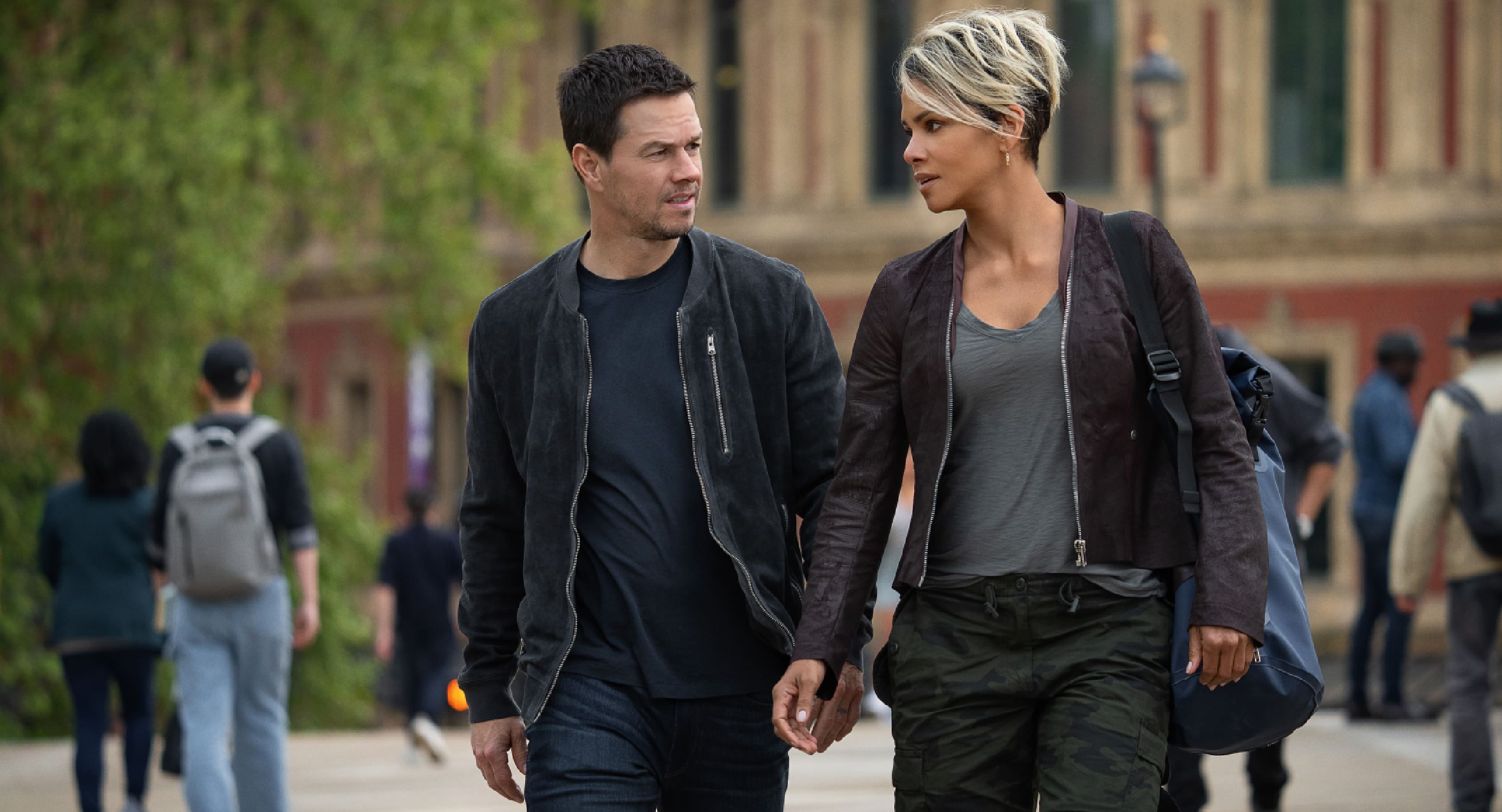The Union – Film Review
Published August 16, 2024

The Union, directed by Julian Farino and written by Joe Barton and David Guggenheim, aims to blend the thrill of espionage with the light-heartedness of comedy. Unfortunately, it largely misses the mark, leaving audiences with a disjointed and ultimately unsatisfying experience. Despite its star-studded cast, featuring Mark Wahlberg, Halle Berry, Mike Colter, and J.K. Simmons, the film fails to deliver a coherent and engaging story, settling instead for a hodgepodge of action sequences and half-baked humor.
Mark Wahlberg stars as Mike, a blue-collar construction worker who is abruptly thrust into the world of international espionage by his former high school girlfriend, Roxanne, played by Halle Berry. The premise itself holds promise, but the execution falters almost immediately. Wahlberg’s portrayal of Mike feels uncharacteristically flat; he oscillates between bewilderment and reluctant heroism, but his character arc lacks depth. It’s hard to root for Mike when his motivations and personality are so poorly defined.
Halle Berry’s Roxanne is equally underwhelming. Though she is presented as a capable and enigmatic spy, her character lacks the charisma and complexity needed to make her truly compelling. The chemistry between Wahlberg and Berry is lukewarm at best, making their on-screen relationship feel forced and unconvincing. The film’s attempt to weave in a romantic subplot between the two only serves to bog down the narrative further.
Mike Colter, playing the antagonist Nick Faraday, provides a slight glimmer of hope. Colter brings a menacing presence to the role, and his performance is one of the few bright spots in the film. However, even his character is not immune to the film’s inconsistent writing. Faraday’s motivations are murky and his backstory is thinly sketched, leaving audiences to wonder why they should care about his nefarious plans.
J.K. Simmons, as the grizzled spy veteran Tom Brennan, offers a reliably solid performance. Simmons infuses his character with a mix of gravitas and wry humor, but even his talents can’t fully elevate the weak script. His interactions with Wahlberg provide some of the film’s more enjoyable moments, but these are few and far between. Alice Lee’s Athena Kim is another wasted opportunity; her character is introduced as a tech-savvy sidekick, but she is quickly relegated to the background, contributing little to the overall plot.
The Union suffers from a lack of tonal consistency. The film can’t seem to decide whether it wants to be a serious action thriller or a light-hearted comedy, resulting in jarring shifts in mood. The comedic elements often fall flat, relying on tired clichés and slapstick humor that feels out of place in an espionage setting. The action sequences, while competently executed, lack originality and fail to generate genuine excitement. There’s a pervasive sense of déjà vu, as if the filmmakers cobbled together a greatest-hits reel of spy movie tropes without adding anything new or interesting.
The film’s pacing is another significant issue. At nearly two hours, The Union feels bloated and uneven. The first act is bogged down with exposition and clumsy attempts to establish the central premise, while the second act meanders with a series of disjointed action set pieces that do little to advance the story. By the time the third act rolls around, it’s hard to muster much enthusiasm for the predictable climax and obligatory twist.
The Union’s technical aspects are competent but unremarkable. The cinematography is serviceable, capturing the action with clarity but without flair. The film’s score, composed by a yet-to-be-named artist, is forgettable, failing to enhance the tension or emotion of the scenes. The editing, particularly in the action sequences, is proficient but lacks the sharpness needed to elevate the material.
In terms of themes, The Union touches on the idea of ordinary individuals being swept up in extraordinary circumstances, but it never fully explores this concept. Mike’s transition from construction worker to spy feels rushed and unconvincing, and the film misses an opportunity to delve into the psychological and emotional toll of such a drastic change. Similarly, the theme of rekindled romance between Mike and Roxanne is handled superficially, with little attention paid to the complexities of their past relationship.
Ultimately, The Union is a film that squanders its potential. With a talented cast and an intriguing premise, it had the ingredients to be an entertaining and unique entry in the spy-comedy genre. Instead, it settles for mediocrity, hampered by weak writing, inconsistent tone, and lackluster execution. While there are a few moments of entertainment to be found, they are not enough to redeem the film as a whole.
